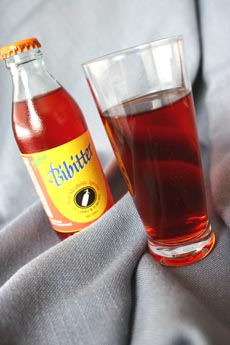TIP OF THE DAY: Why Your Favorite Food Products Are Discontinued
|
This week we received an email from a reader asking what happened to Bibi Caffe, a line of elegant, imported Italian sodas we reviewed in 2007.
She wanted to know why the line was no longer sold in the USA, and asked if there was “any way to get it at all?” If “at all” includes taking a trip to Italy to bring it back, there is a solution. Otherwise, Bibi Caffe joined the ranks of products, imported as well as American-made, that are discontinued by stores. Here’s why products are discontinued: The 20,000 new products include variations of existing brands, such as Chocolate Flavored Instant Cream Of Wheat cereal and the latest flavor of Diet Coke, as well as more niche products. (We once came across Brown Sugar Sweet & Low). |
 Bibi Caffe Italian soft drinks are packed with flavor and not too sweet. Photo by B.A. Van Sise | THE NIBBLE. |
|
|
2. It has nothing to do with how good (or mediocre) the product is. As the expression goes, “It’s not personal, it’s business.” To maximize profit, retailers need to optimize their shelf space, which includes inventory turns (the reorder rate or other measure) and profit margins. A product that turns stays on the shelf. A product that doesn’t turn fast enough can be discontinued to provide space for a product that will hopefully turn more (and generate more sales and profits). Products that don’t meet sales goals are discontinued by the manufacturer. So even if something sells well in your area, if it isn’t as popular elsewhere, it may be discontinued. In addition to slotting fees, retailers may also charge promotional, advertising and stocking fees. Unfortunately, the whole system works against small manufacturers that don’t generate the volume to pay such fees, and don’t have the marketing muscle to promote their products to create the volume. Thanks to the Internet, small manufacturers can sell from their websites. But Biba Caffe is imported and the glass bottles are heavy to ship. Even if the company sold it online, only moguls would pay to have it shipped from Italy. WHAT CAN YOU DO ABOUT IT? And appreciate that, like fresh flowers, some things are ephemeral. Enjoy them while they last.
|
||

